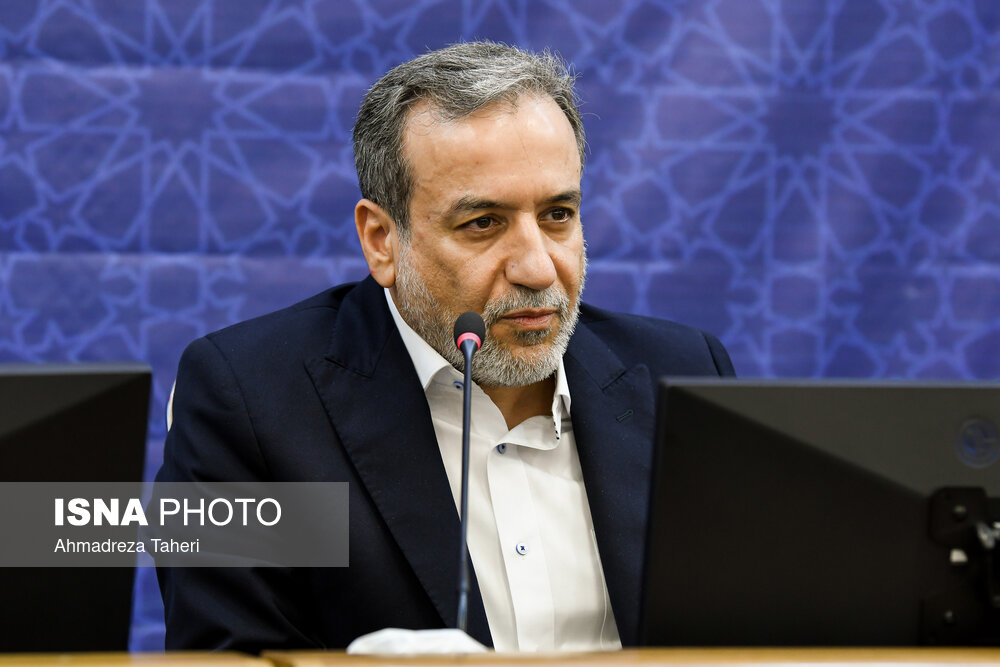“We will not agree to any agreement until our interests are secured,” Araghchi said in an interview on Sunday.
He added, “It doesn’t matter who the other party is we will negotiate in which our interests are secured.”
“Of course, it has its own conditions with the Americans. There were contacts in the previous government and we will continue in this government if necessary.”
“It is a fact that the Americans are not ready to negotiate now,” he said.
“There is not much time left until their [presidential] elections. No country is ready for serious negotiations at the time of elections and this is completely normal,” Araghchi added.
“If necessary, we will start contacts with the Europeans and we will not wait for America,” he stated.
The top Iranian diplomat said Europeans should understand Iran’s concern. “If they have concerns, we also have concerns.”
He went on to say that Iran has “a problem with Europe in the field of economic sanctions. The way is not to use failed tools.”
Araghchi added Europeans previously imposed all kinds of sanctions against Iran over its peaceful nuclear program, but they had to come to the negotiating table.
“It is clear that the embargo has failed.”
Elsewhere in his remarks, Araghchi said that Europeans are worried that Iran is exporting sophisticated weapons to Russia to be used in the Ukraine war.
“If Europe is really concerned, the way is dignified talks,” he explained.
Europeans should not expect that their concerns will be solved by only one side. Iran is ready to talk with them, the foreign minister added.
Araqchi expressed his surprise that Europe is still hopeful about the failed policy of imposing sanctions on others and is acting based on such a defeated experience.
The Iranian foreign minister’s comments came after the foreign ministers of the United Kingdom, France and Germany – known as the E3 – denounced what they alleged to be “Iran’s export and Russia’s procurement of Iranian ballistic missiles”.
They also moved to “cancel bilateral air services agreements with Iran” and announced that they would work towards imposing sanctions against Iran Air, the country’s national airliner, under the pretext of allegedly interfering in the conflict in Ukraine.
On Tuesday, the US Treasury and the State Department imposed sanctions on 10 individuals and nine entities based in Iran and Russia.
Included in the sanctions were ships that regularly bring cargo across the Caspian Sea between Iran and Russia, the Treasury said.
Since the war broke out in Ukraine in February 2022, the Islamic Republic has on numerous occasions brushed off the accusations of interfering in the conflict in the realms of providing military equipment and assistance to Russia.
The negotiations to restore the 2015 nuclear deal – officially known as the Joint Comprehensive Plan of Action (JCPOA) — began in April 2021, three years after the US unilaterally withdrew from the UN Security Council-endorsed agreement and began to target Iran’s economy with tough economic sanctions.
Iran has criticized the lack of will on the side of the US and the E3 to revive the deal and has ramped up its nuclear activities in response to their non-compliance.
Tehran began to gradually remove a cap set in the JCPOA on its nuclear activities at bi-monthly intervals. At the time, Iran also maintained that if the Iranian economy was shielded from sanctions, it would reverse its nuclear decision.
Araghchi said that “a proper foundation must be created for restarting the negotiations and then we enter into negotiations that proceed based on the same formula used in the JCPOA, which was confidence building instead of lifting sanctions”.
“The JCPOA was based on the logic that Iran would build confidence in its peaceful nuclear program and the other side would lift sanctions. We can return to this formula,” he stated.
“In my opinion, the JCPOA is still a suitable framework that will lead us to a new agreement,” he added.
“Of course, all of this depends on us reaching a point of mutual understanding with the Europeans and the rest of the JCPOA members so that we can enter into renewed negotiations from an equal position.”
“It’s not like we need to remove the sanctions in such a way that we violate our larger interests or our own dignity. No, we are ready to enter into respectful discussions,” Araghchi said.
“Our look at the past is to learn from the past, but we don’t stop at the past. We’ll look to the future,” he stated.
JCPOA talks have been on pause since August 2022, with Iran blaming a lack of political will on the part of US President Joe Biden’s administration to undo the damage caused to the multilateral nuclear deal by the previous US administration.
Former US President Donald Trump pulled Washington out of the UNSC-endorsed agreement in May 2018, imposing severe economic sanctions against Tehran while Iran was adhering to its commitments under the deal and even continued to do so for a year after the US withdrawal.
Tehran scaled back its commitments to the JCPOA in a series of pre-announced and clear steps after witnessing the other parties’ failure to secure its interest under the agreement.
